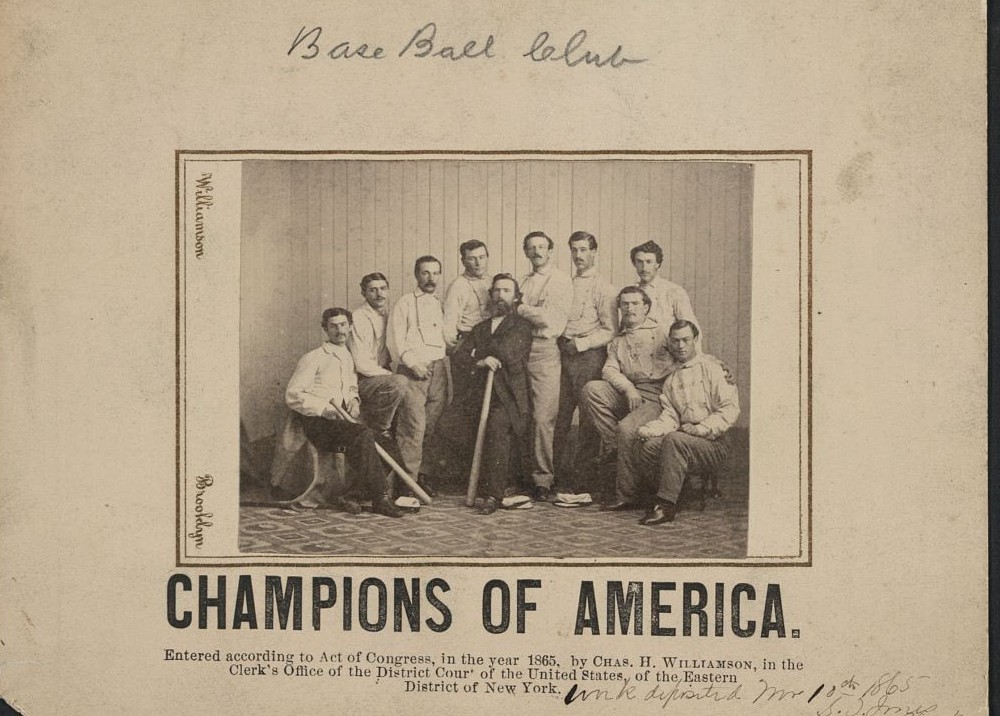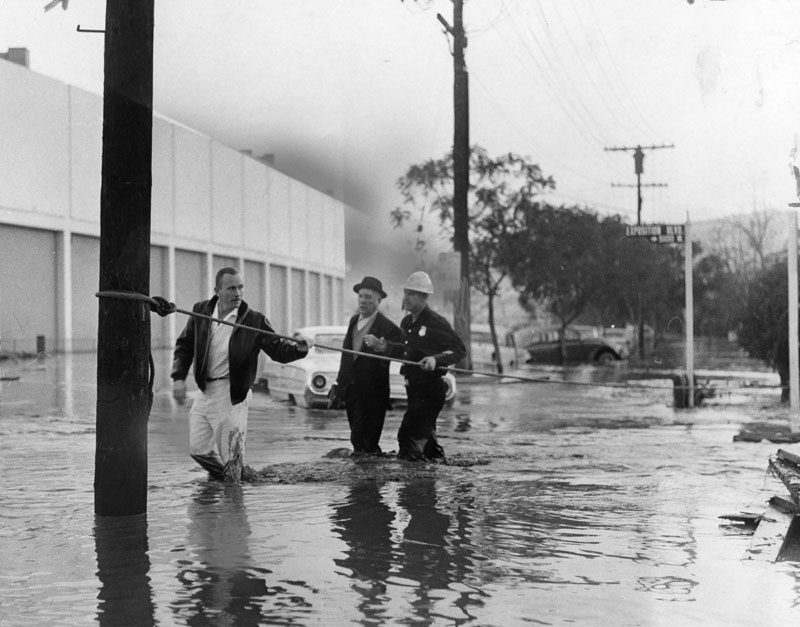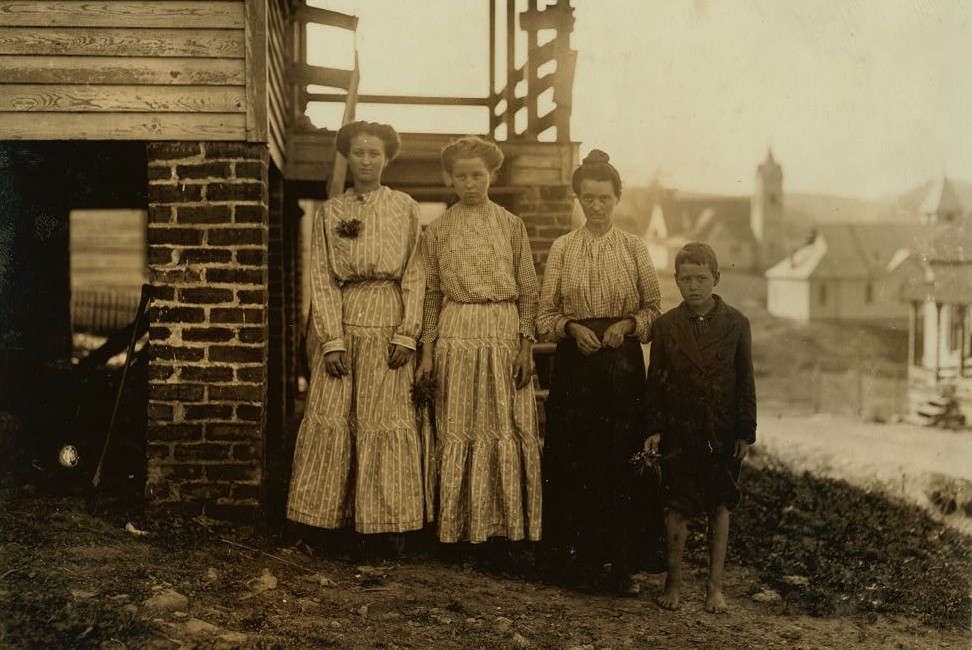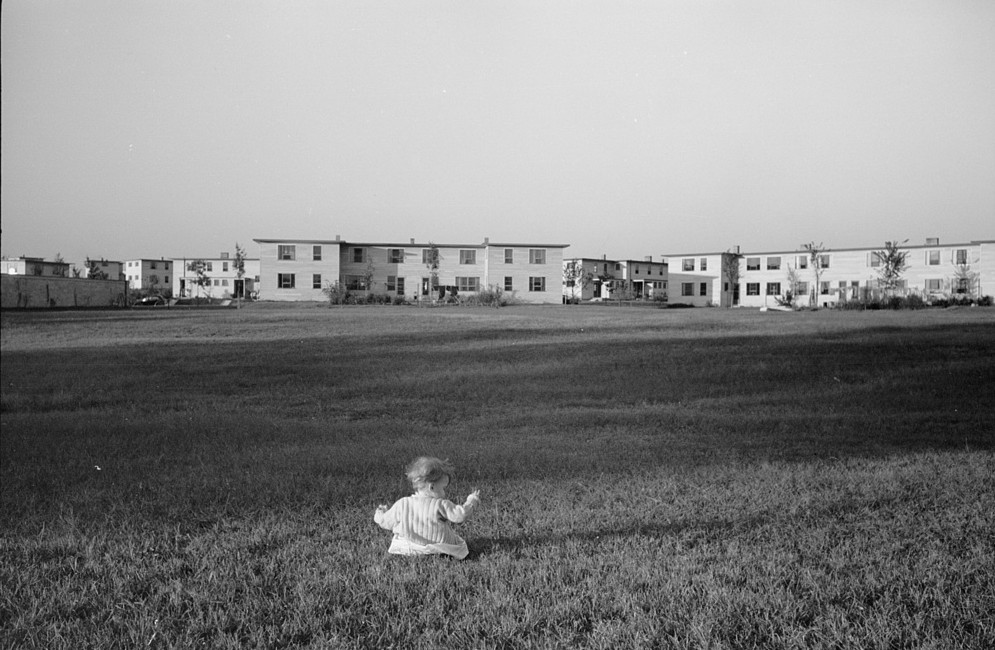This may be the earliest film of a baseball game made in May 20, 1898 by Thomas A. Edison, Inc. from the Library of Congress.
Notes about the film state:
- Photographed from one camera position behind home plate, the film shows a baseball game in progress. The action includes two players running toward the camera; one uniform is distinguishable as Newark, New Jersey.
- According to the Baseball reference WWW site, in 1898, the Newark, N.J. team was the Newark Colts.
- The Reading pitcher has just let a Newark batter walk to first. He gets up on his toes, ready to head for second base. The next batter up cracks first ball pitched for a two bagger, and races for the base with a burst of speed. The first baseman just misses a put-out. A man on the coaching line yells, the umpire runs up to make a decision, and a small boy runs behind the catcher, close to the stands, where there is a great commotion.
Baseball cards were not commonplace until the 1880s
Baseball cards as we know them did not become commonplace until the 1880s. This early prototype (below) is actually an original photograph mounted on a card. At the start of the 1865 season, the Atlantics presented opposing teams with framed photographs of the “Champion Nine.”
The Scottish-born photographer Charles H. Williamson opened a daguerreotype studio in Brooklyn in 1851, continuing to work as a photographer until his death in 1874.
Champions of America – Early baseball card prototype showing ten members of the Atlantics of Brooklyn baseball club.
“Baseball, America’s national pastime, evolved from a child’s game to an organized sport in the 1840s and 1850s. It was an urban sport, and the first teams were established in New York City and Brooklyn. By 1860 baseball had replaced cricket as the nation’s most popular ball game. Before the Civil War, more than one hundred baseball teams played in the New York City area. During the war, the number of teams dwindled to fewer than thirty, but thousands of spectators flocked to games. The Brooklyn Atlantics dominated early baseball by winning championships in 1861, 1864, and 1865. The Atlantics usually crushed their competition, scoring two or three times more runs than their opponents. The game was an amateur sport: according to the rules of the National Association of Base Ball Players, athletes could not accept wages to play ball, although gifts and jobs were sometimes offered as a means of compensation.” (From American Treasures exhibition – Library of Congress)
Photo below shows the U.S.S. Maine baseball team including pitcher William Lambert (back row, far right) and John H. Bloomer (back row, far left). All of the team members except for John Bloomer were killed in the explosion of the U. S. S. Maine on February 15, 1898. 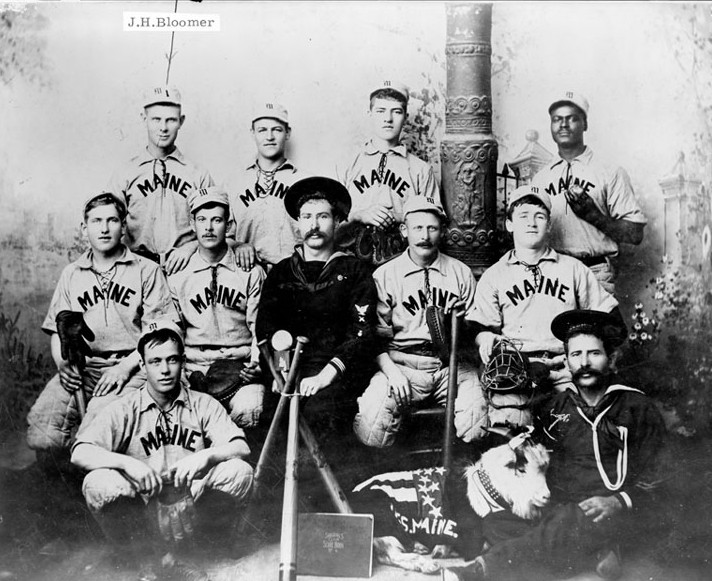
Advertisement for fly paper below shows how popular the game was becoming. The AD shows flies playing baseball with insets illustrating a variety of plays. Caption on border: “Sure Catch” sticky fly paper, 25 double sheets, sealed with flexible adhesive border. Prepared by J. Hungerford Smith Co., Manufacturing Chemists, Rochester, N.Y., U.S.A. ca. 1860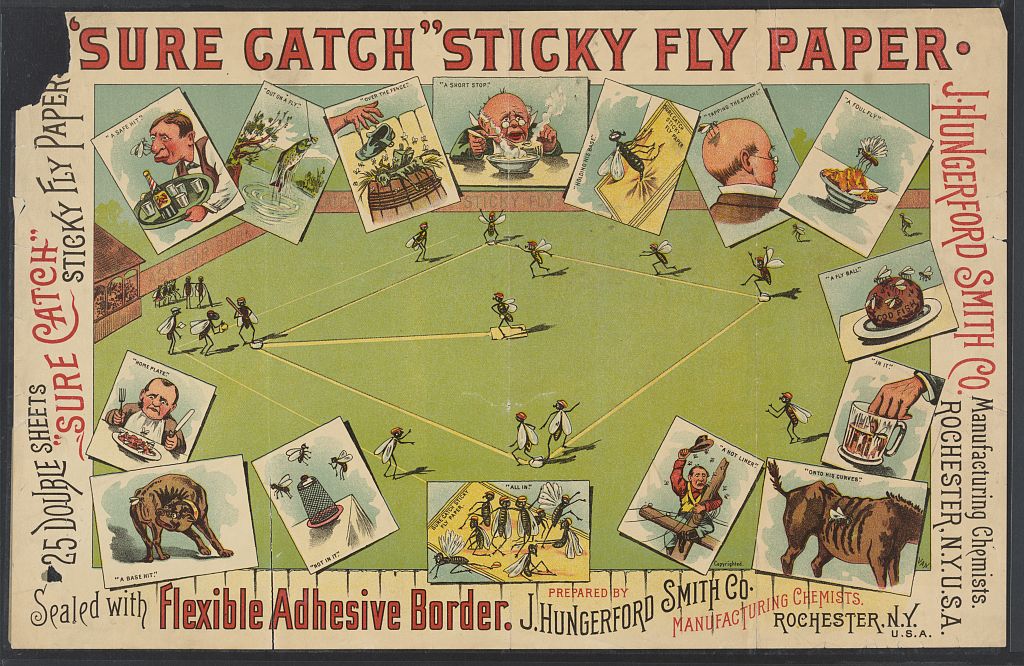
This is an Illustration showing a small crowd gathered around the edges of a field watching a baseball game at Elysian field Hoboken, New Jersey Oct 15, 1859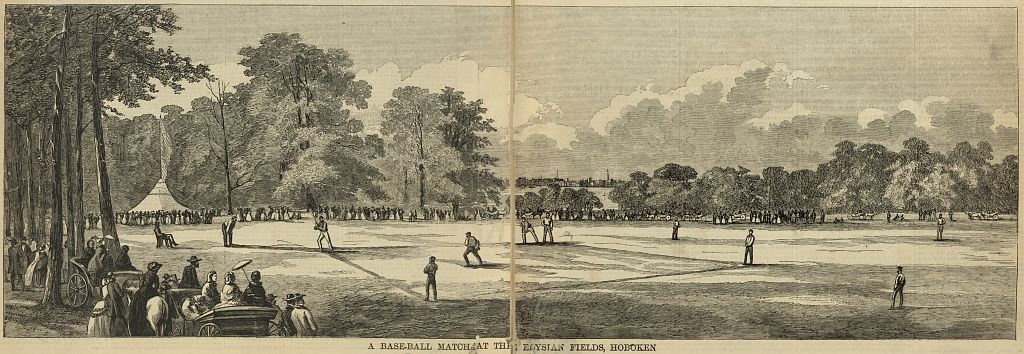
The pro-Lincoln satire below was deposited for copyright weeks before the 1860 presidential election. The contest is portrayed as a baseball game in which Lincoln has defeated (left to right) John Bell, Stephen A. Douglas, and John C. Breckinridge. Lincoln (right) stands with his foot on “Home Base,” advising the others, Currier & Ives ca. 1860 by artist Louis Maurer. 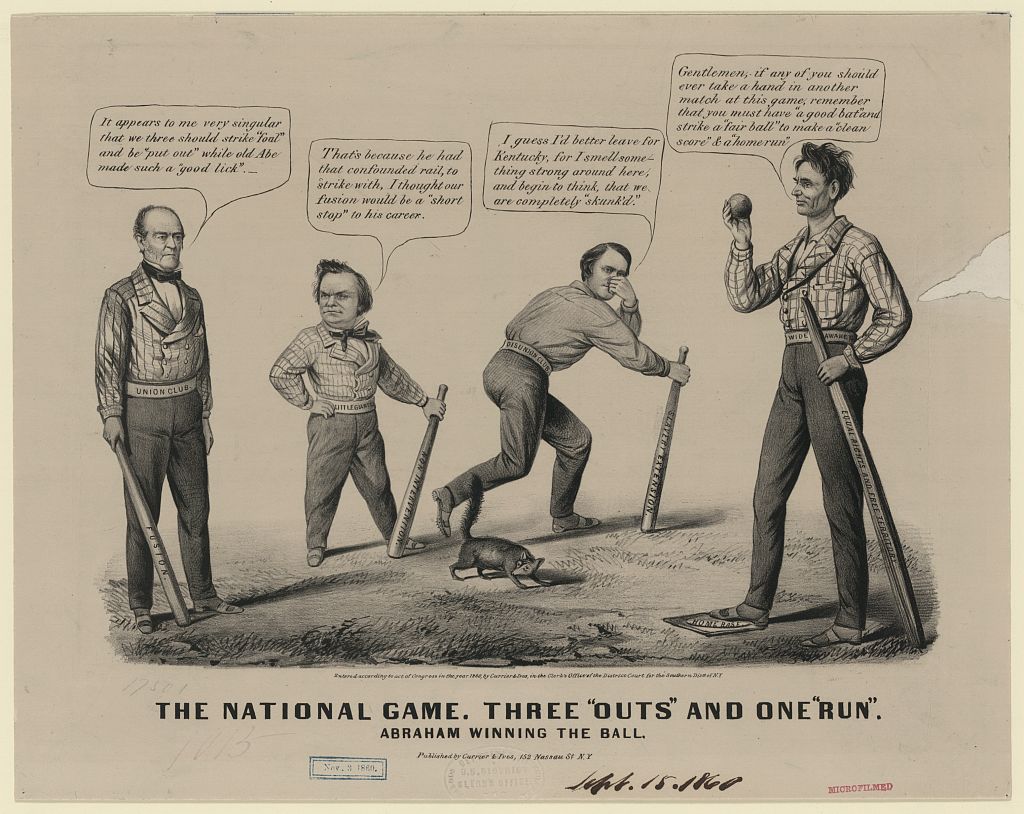
This cover on Harper’s Weekly for March 23, 1861 shows Major Robert Anderson’s command at Fort Sumter in 1861. Nine men in uniform posing, including Capt. Abner Doubleday (1819-1893), originator of baseball, who aimed first shot fired at Confederates in Civil War. Anderson, Robert; Crawford, Samuel, Wylie, 1829-1892; Foster,John Gray, 1823-1874; Seymour, Truman, 1824-1891; Snyder, Lt. G. W.; Davis, Jefferson Columbus, 1828-1879; Meade, 2nd Lt. R. K.; Talbot, 1st Lt. T. 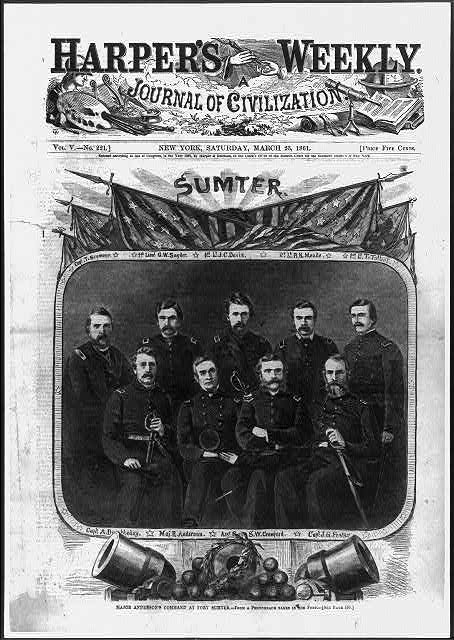
This is a sheet music cover for piano showing baseball players on the field and spectators under the tent of the “M.B.B.C.” (Mercantile Base Ball Club) in background. Home run quick step – respectfully dedicated to the members of the Mercantile Baseball Club of Philadelphia by John Zebley, Jr. – T. Sinclair, lithographer ca. 1861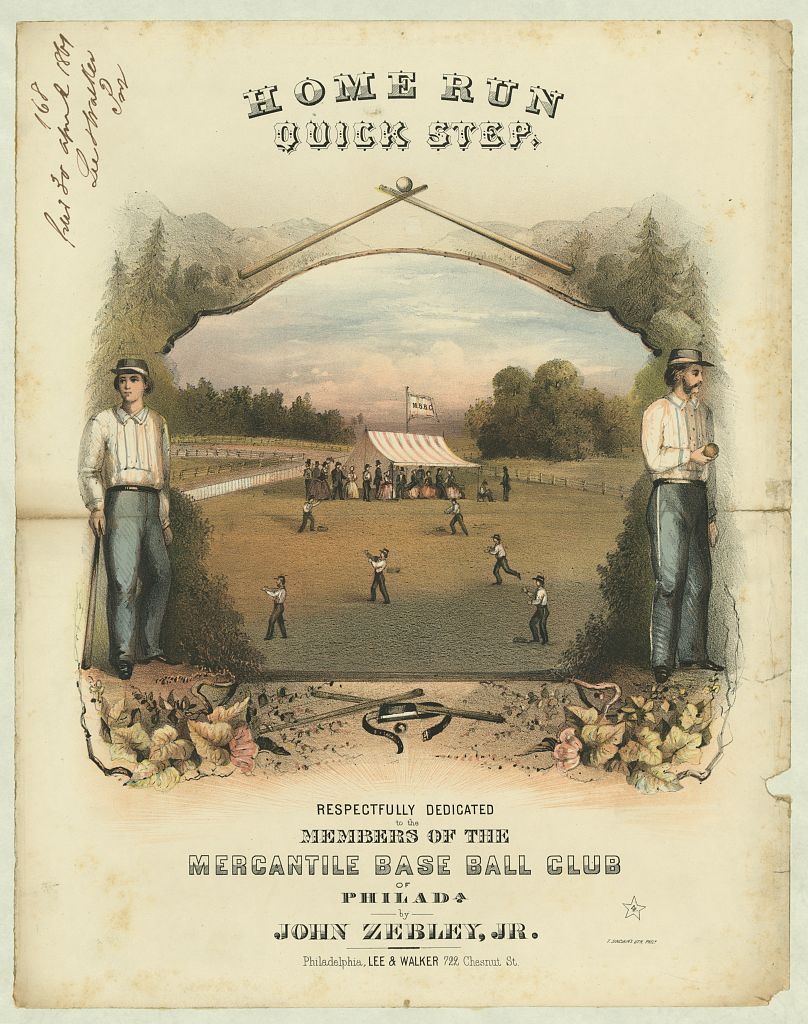
These Union prisoners at Salisbury, N.C. were drawn from nature by Act. Major Otto Boetticher ; lith. of Sarony, Major & Knapp, 449 Broadway, N. York. – Artist Otto Boetticher, – ca. 1863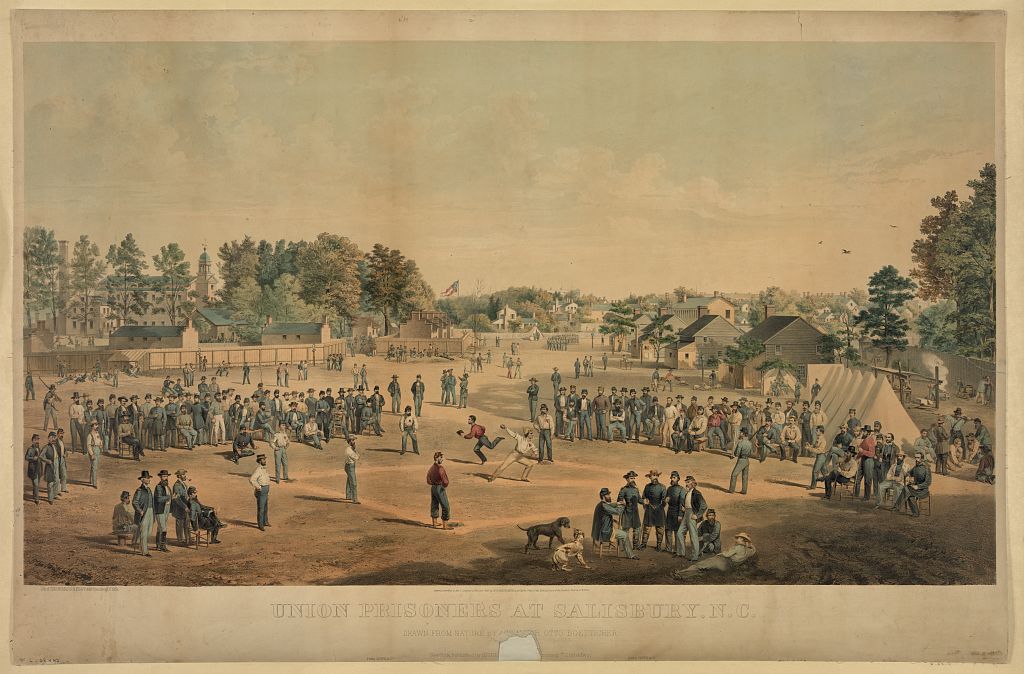
The Baseball match below is between the “Athletics”, of Philadelphia, Pa., and the “Atlantics”, of Brooklyn, N.Y., played at Philadelphia, October 30, 1865 sketched by Joseph Boggs Beale. November 18, 1865 – Illustration showing spectators around the baseball field in Philadelphia during a baseball game between the Philadelphia Athletics and the Brooklyn Atlantics; also shows two fans settling a disagreement in the center foreground. 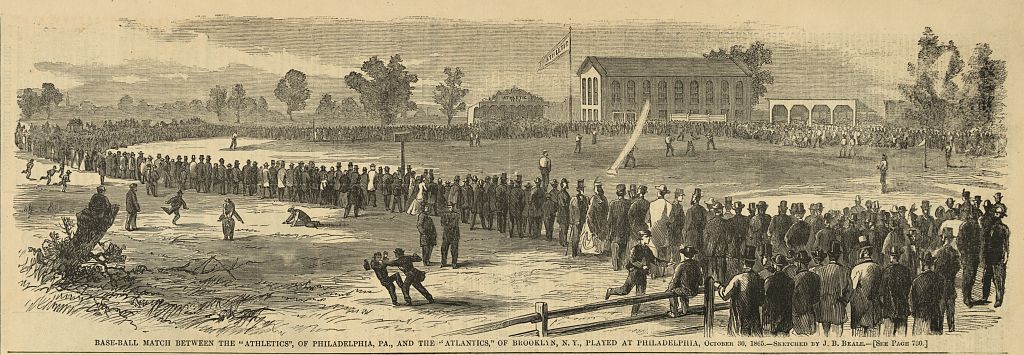
VINEGAR OF THE FOUR THIEVES: Recipes & curious tips from the past
Have you heard excessive brain labor causes baldness or the cure for wrinkles is a tepid bath in bran? Do you want to know Thomas Jefferson’s recipe for Vinegar of the Four Thieves or how to make Ox Tail Soup? Have you ever had ‘blueberry pickles’, ‘batallia pie’ or ‘snow birds’? You will learn all this and more in “Vinegar of the Four Thieves.”Our ancestors had to be resilient when they faced obstacles in daily life, from dealing with pests, medical emergencies, caring for clothing, and cleaning shortcuts. Almost everything they used in daily life was homemade. Some ideas were great but some were very strange. This book is a collection of household tips, medical cures, clothing care, and old recipes from the 1800s and 1900s. Many of the tips, such as the household cleaners, cooking tips, and ways to control pests, still work and are helpful in today’s ‘green’ environment while others such as ‘how to cure a dog of eating eggs’ will make you laugh. Either way, this book will help you appreciate the difficult life your grandparents endured. With Bonus: First two chapters of novel Ribbon of Love
